Surviving recession: I didn’t plan to start a firm after uni. COVID-19 made me do it
Fresh graduate Jake Tan and some of his friends were unable to find work, so they made jobs for themselves. He’s one of 12 Singaporeans who shared with CNA Insider how they’ve weathered COVID-19’s economic fallout.
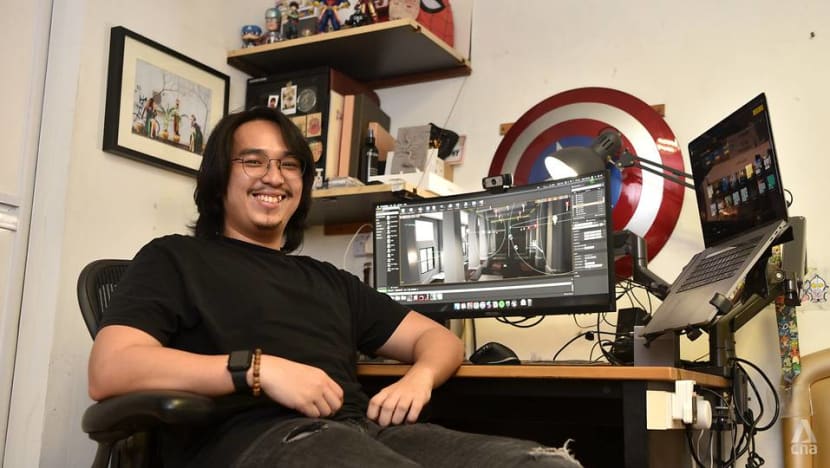
Jake Tan, 26, thought he would have worked for other companies before starting one of his own.
SINGAPORE: When events started being put on hold around January 2020, I wasn’t particularly afraid. I thought I could adapt, and that I was assured of a job in the company where I’d done my internship.
I majored in interactive media, and before my final year at university, I had interned at a creative agency. When school started, I continued with the agency on a part-time basis.
I was a creative technologist. I was the tech lead in events, doing projection mapping and augmented reality (AR) installations. (Projection mapping is a technique that turns irregularly shaped objects into a video display surface.)
The news that I no longer had a post-graduation job came subtly.
I go, “Boss, you’re still hiring me?” And he says, “Eh? You know the situation — I can’t.” And I go, “Okay, I understand.”
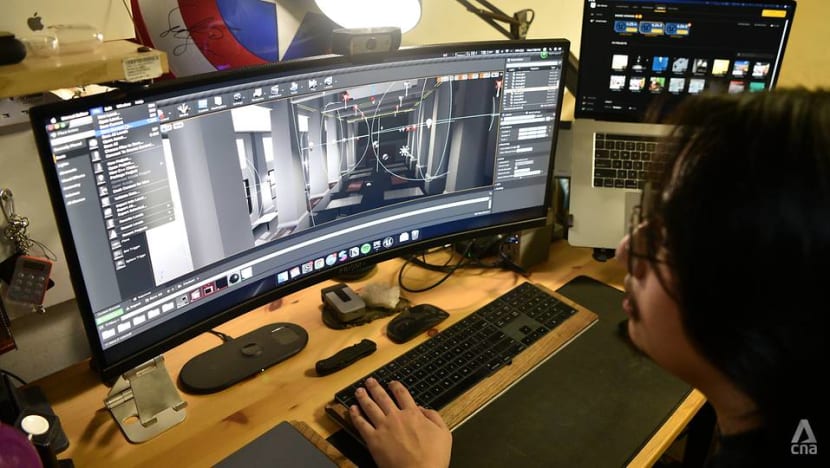
I would’ve commanded quite high pay, and I think, in the end, he went for someone else. I think he tried not to lay off people until sometime around May — when I graduated — when he no longer had a choice.
A few friends and I were unable to find jobs. So we decided to make jobs for ourselves.
EXPLORE THE INTERACTIVE SPECIAL: Surviving recession: How 12 Singaporeans Weathered COVID-19's Economic Fallout
Just before the pandemic, I had created AR Instagram filters for a few clients. That evolved into a little digital agency called Serial Communication.
We started it in June with three core members: Sheryl Sim and Ernest Goh are my co-founders and creative directors, while I lead tech and operations.
I’ve always wanted to start a company, but I didn’t think I’d do it as a fresh graduate. If COVID-19 hadn’t happened, my friends and I would’ve worked for other companies and gained a stable footing first.
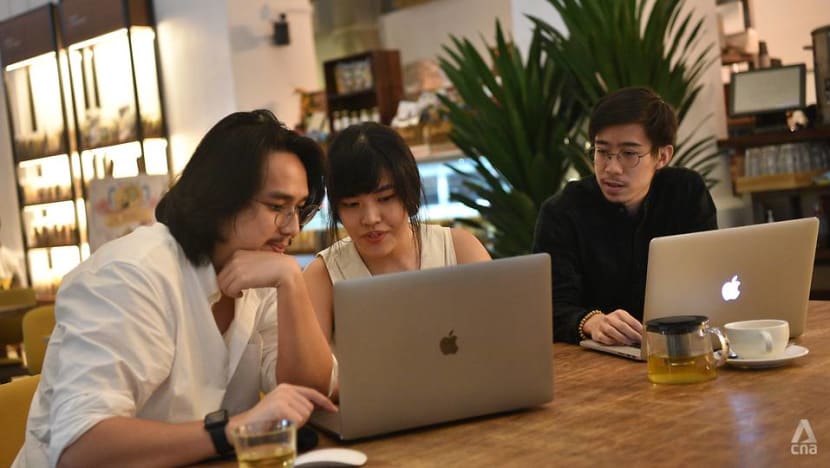
Serial Communication snagged about one job a month. It could pay between S$3,000 to over S$8,000, which wasn’t enough to sustain our whole team.
We could see marketing budgets being cut. Clients would say, “We really want to give you more, but this is the amount that we have.”
Sometimes we don’t want to accept those prices, but we kind of have to.
In between Serial’s jobs, we tried to make do with other jobs.
READ: Surviving recession: I was laid off twice within months. Now I help others like me find jobs
Sheryl does wedding videos and video art, and has completed an SGUnited traineeship. Ernest works part-time at a maker space (creative space to hone digital and other skills) while learning to code.
I almost signed up to do GrabFood deliveries, thinking I might as well earn a little bit of money. My father is retired, and my mum is a freelance tutor, while one of my two sisters is already working.
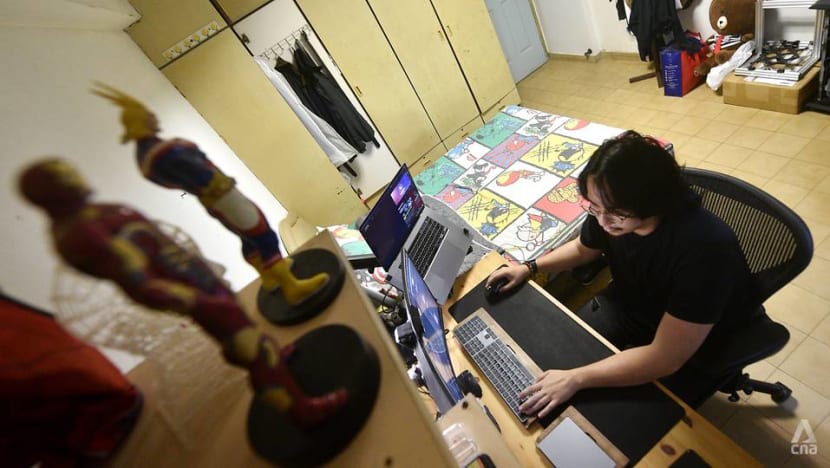
But in September, my professor hired me as a research assistant to do programming for the virtual reality component of an exoskeleton research programme.
It’s a multidisciplinary collaboration centred around wearable assistive devices that will help mild/moderate stroke patients. My six-month stint pays S$3,000 a month.
I’m also doing an NTU MiniMasters business course because it’s free for the Class of 2020.
From April, my friends and I will focus more on our business. We’re working on branding and a proper website, and we haven’t really put ourselves out there yet. Most of our engagements have been by word of mouth.
READ: Surviving recession: I lost my shop after 16 years. But my fashion business isn’t dead yet
Our projects have included a projection mapping piece for a restaurant in Dempsey Hill. The restaurant really liked it, and we might do something new for them each year.
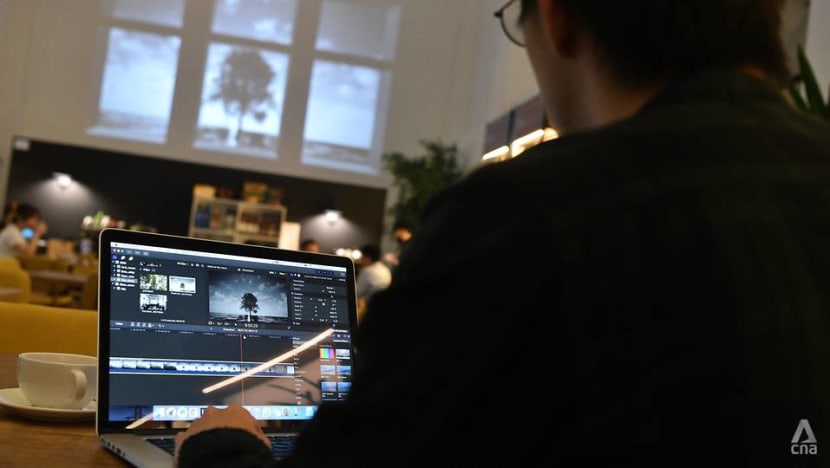
We’ll also be creating an AR experience on Instagram for the boutique hotel Lloyd’s Inn.
If there’s an advantage in starting a company during a pandemic, it’s in terms of overheads.
We probably would’ve needed an office space, and to go and network with people — but we now save money and time through Zoom meetings.
There’s one thing, however, that got me down last year: I felt I didn’t really create any art. I’m still pondering what the role of an artist is in a pandemic.
READ: Despite struggling to draw digital audiences, a dance company persists in the pandemic
We were all doing part-time jobs and trying to survive. I know a few artists and deejays who carried out swabbing — just a lot of people trying to adapt.
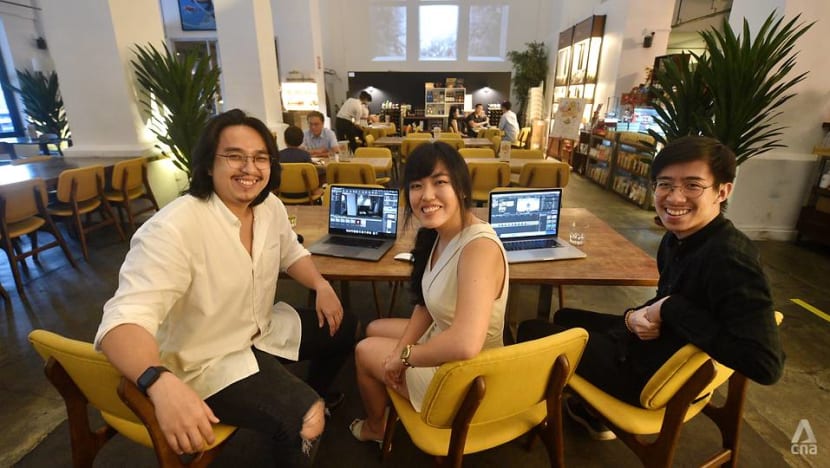
Before the pandemic, the thinking about artists was that we question the status quo and try to shed light on issues like global warming. Today, should our work be about the pandemic, or do we still talk about global warming?
How do we not lose our purpose? It’s an internal conflict.
Read about the dancer who’s still finding his way back after his career and mental health suffered.

















